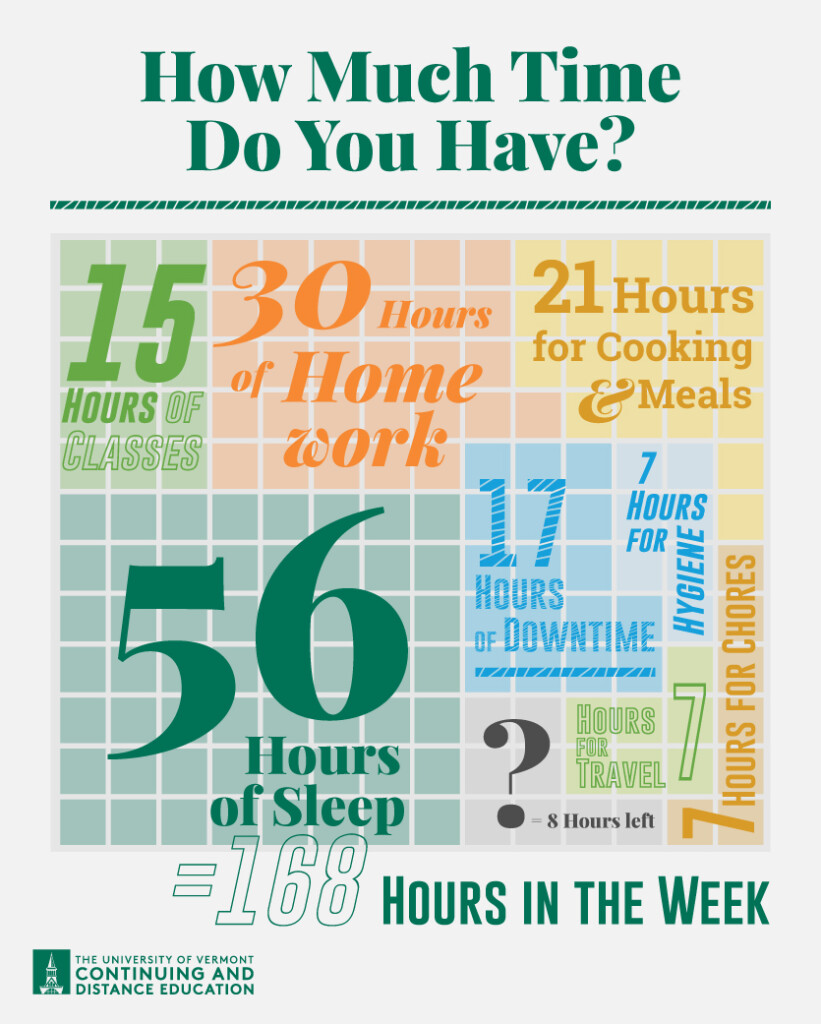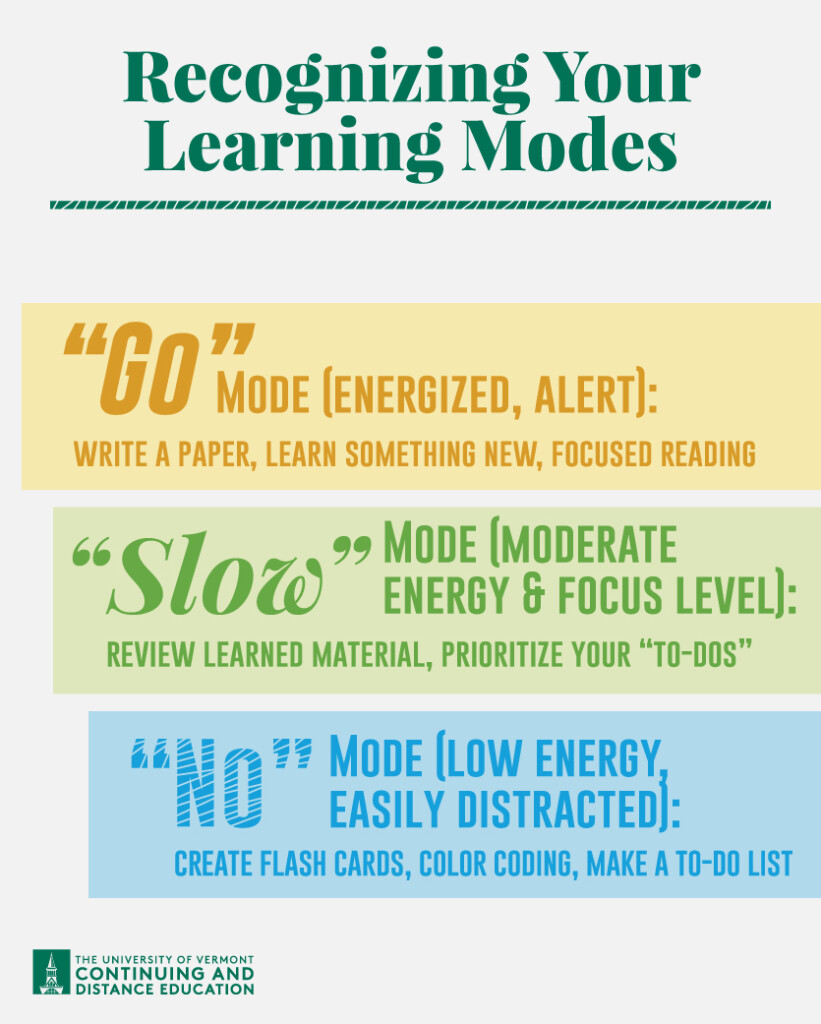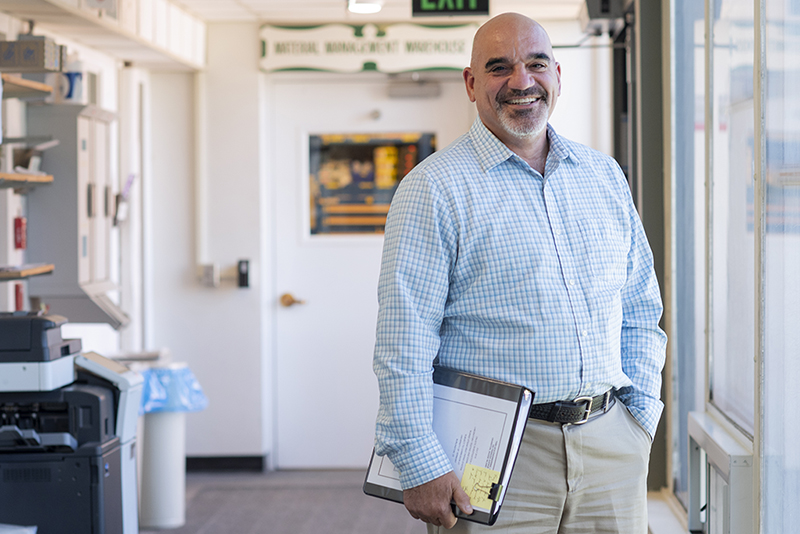When it comes to managing your schedule in college—is it possible to keep time on your side?
In the first of our webinar series on time management, The University of Vermont Professional and Continuing Education shares ways students can effectively manage their time, especially in our increasingly virtual world.
In part one, Time Management Strategies, panelists discuss how students can harness both university resources and self-awareness to maximize their efficiency during the school year.
Figure Out How Much Time You Really Have
Before you can even start figuring out how to manage your time effectively, Keith Williams, Tutor Program Administrator for the Tutoring Center and Center for Academic Success, says students must first figure out how much time they actually have to work with.
 There are 168 hours in the week and the average student spends:
There are 168 hours in the week and the average student spends:
- 56 hours sleeping (8 hours of sleep per day)
- 15 hours in class
- 30 hours doing homework (two hours of homework per credit hour)
- 21 hours cooking and getting meals (one hour per meal over the course of the week)
- 7 seven hours doing hygiene activities, travel, and chores
- 17 hours streaming videos and getting downtime
That leaves only eight hours of free time. Things like working out, social time, full- or part-time jobs, or phone calls to family and friends haven’t even been factored in yet. Without an effective time management system in place, one can imagine that any semblance of “balance” can quickly derail.
“Figure out what works for you and what’s worked in the past,” Megan Faber, a former UVM student and study skills and subject area tutor said. “If you know that mobile apps work really well for you, try to incorporate those into your schedule. If you know that a paper planner has worked throughout high school, keep using that. Using it is the most important part because nobody is telling you what you have to do […] I like to make a big list at the beginning of the semester of all my assignments that are due, and then I break it down by week to keep myself on track. And I know that if I don’t get it done today, I can get it done tomorrow, so give yourself a little bit of grace.”
Recognize Your Learning “Modes”
Student time management is most succesful when students do tasks in the right learning mode for the task type.
The ability to learn may be dependent on time of day (are you a “morning person” or a “night owl”?), whether your energy is driven by caffeine or food, and how your environment determines your ability to accomplish your goals. Williams noted that people’s modes generally fall into three categories:
- “Go” Mode (energized, alert): write a paper, learn something new, focused reading, create a diagram, etc.
- “Slow” Mode (moderate energy and focus level): review learned material, draft an outline for a paper, create a study guide, prioritize your “to-dos”
- “No” Mode (low energy, easily distracted): create flash cards, organize notes, color coding, highlighting materials, make a to-do list

“It does require self-reflection,” Dr. Nicole Breslend, lecturer for the Department of Psychological Science at UVM said. “Especially if you’re coming from high school, you may have been in go, go, go mode all the time, and maybe you already had a structure in place where we had dinner at this time, we had homework at this time—that’s very different in college—there’s much more independence, which means we may be doing Netflix time when it’s actually a good time for us to be studying.”
Resources and Strategies for Student Time Management
When it comes to achieving your school/work/life balance, there’s going to be a period of trial and error. “No one likes to hear this, but this is a highly personal thing and nothing is going to work 100% for every person,” Williams said. “We’re going to have some strategies that are widely useful, but everyone needs to find their own path with this.”
In his experience, Williams finds that students do generally well with some of these suggestions and guidelines:
- Create routine wherever possible
- Create an at-a-glance master calendar for the semester
- Assignments, homework
- Long-term assignment deadlines
- Exams
- Optional: important dates (withdrawal deadline, cancelled classes, social events)
- Get specific about long-term and short-term plans
- Set specific goals
- Fine-tune the to-do list
- Support ongoing reflection
- Schedule: get specific and know when you’re done (not when you just feel done)
- Study as you go: 45 minutes of work, 15 minutes look back to review
- Take breaks! Mini study sessions are much more effective (get up every 30 minutes)
- Find your focus: where, when, remove distractions (phone)
- Monitor how you’re doing: Zoom in, zoom out (by day, week, month)
- Don’t work alone: Instructors, peers, TAs, and tutors
“The bottom line is that mental health is the most important thing,” Breslend said. “We’re not robots, right? We all need to have leisure activities, we all need to have a sense of involvement, and that’s actually going to help you feel more energized and motivated to be able to do the other things that you need to do. Making sure that you are feeling connected and involved, even if you are doing your courses remotely, is going to be really important for you to actually succeed in all these other areas.”
Associate Director for Student Life, Jerome Budomo explains how student time management can be maximized while taking remote classes.
Watch the full Effective Virtual Learning Time Management Webinar.
Look for part two and three of our Effective Virtual Learning Series on Creating a Learning Mindset and Holistic Approach to Learning Amidst Uncertainty.
Editor’s note: this post was originally published in 2020 and has been revamped and updated for accuracy.




